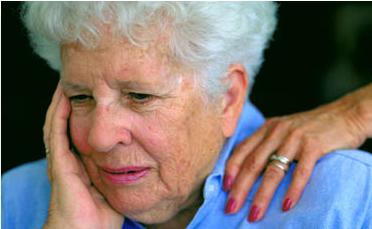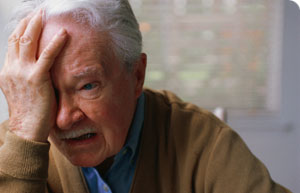 Older women are more likely to become depressed and to remain depressed that older men, according to a recent report published by Yale researchers in the Archive of General Psychiatry. Lisa C. Barry of the Yale University School of Medicine and colleagues began the study in 1998, with some 750 people aged 70 and older. The participants were assessed at the beginning of the study and then every 18 months over the following six years, Medical News Today reports.
Older women are more likely to become depressed and to remain depressed that older men, according to a recent report published by Yale researchers in the Archive of General Psychiatry. Lisa C. Barry of the Yale University School of Medicine and colleagues began the study in 1998, with some 750 people aged 70 and older. The participants were assessed at the beginning of the study and then every 18 months over the following six years, Medical News Today reports.
Around 35.7 percent of the participants suffered depression at one point or another during the study. Of those, 17.8 percent remained depressed during two consecutive follow-up periods, 11.2 percent during three consecutive evaluations, 6.3 percent during four, and 4.5 percent during all five follow-up evaluations. More women that men were found to be depressed at each 18-month evaluation, and women were more likely than men to experience depression at later follow-ups, the researchers wrote.
 “Adjusting for other demographic characteristics, women had a higher likelihood of transitioning from non-depressed to depressed and a lower likelihood of transitioning from depressed to non-depressed or death,” the study authors wrote, as quoted by Medical News Today. The researchers report that there is strong evidence in their findings that depression is more likely in older women than in older men and note that this is surprising, since women are more likely than men to receive treatment for depression. “Whether women are treated less aggressively than men for late-life depression or are less likely to respond to conventional treatment is not known, but should be the focus of future research,” the authors wrote. Barry and her colleagues emphasize that the study’s results show there is great need to “initiate and potentially maintain antidepressant treatment after resolution of the initial depressive episode.”
“Adjusting for other demographic characteristics, women had a higher likelihood of transitioning from non-depressed to depressed and a lower likelihood of transitioning from depressed to non-depressed or death,” the study authors wrote, as quoted by Medical News Today. The researchers report that there is strong evidence in their findings that depression is more likely in older women than in older men and note that this is surprising, since women are more likely than men to receive treatment for depression. “Whether women are treated less aggressively than men for late-life depression or are less likely to respond to conventional treatment is not known, but should be the focus of future research,” the authors wrote. Barry and her colleagues emphasize that the study’s results show there is great need to “initiate and potentially maintain antidepressant treatment after resolution of the initial depressive episode.”
No comments:
Post a Comment